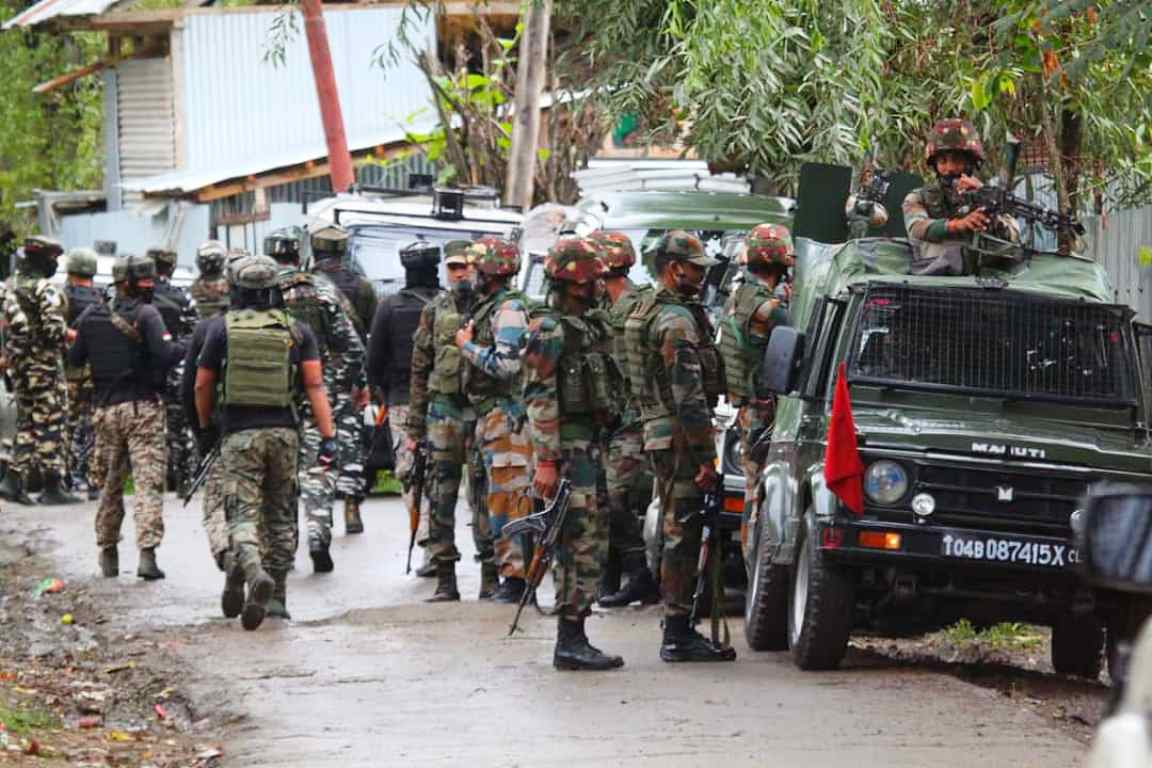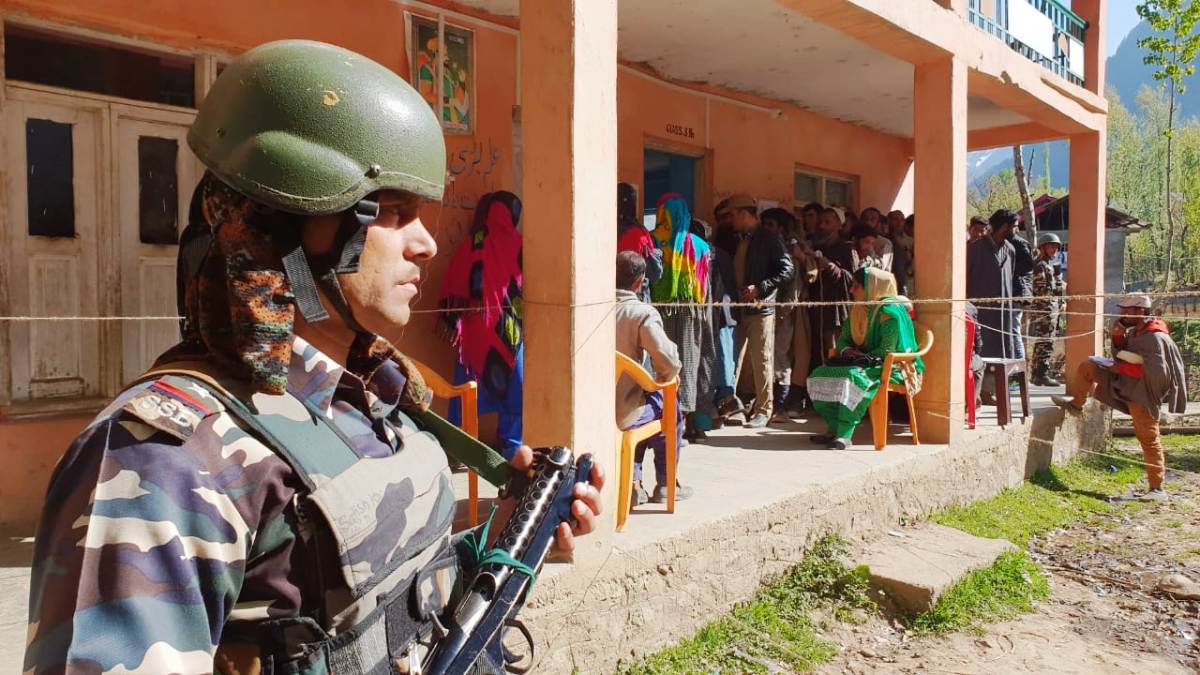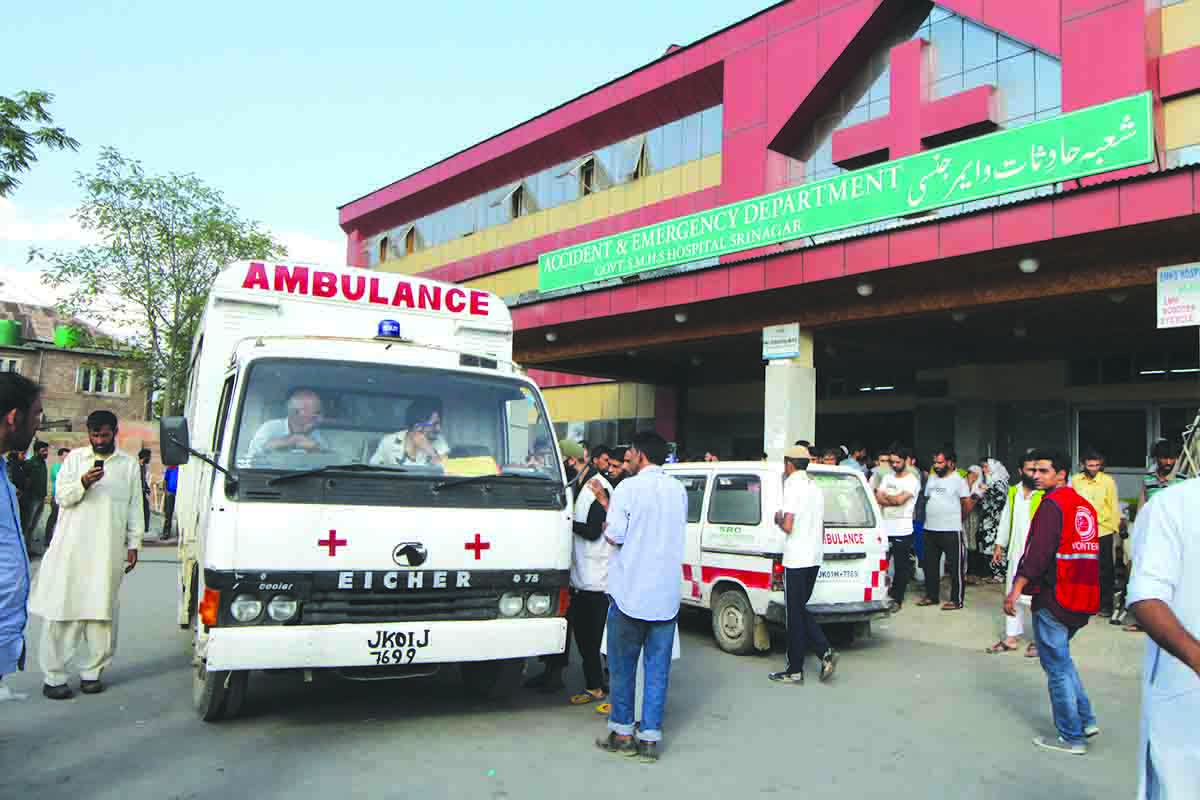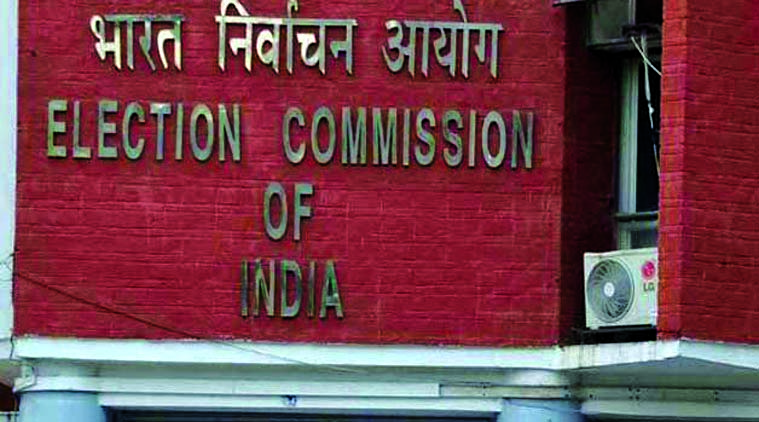by Masood Hussain
SRINAGAR: With two days left for the Eid, the day of the animal sacrifices by Muslims, all the roads in Srinagar were leading to the Eidgah, the main make-shift market for the purchase of goats, sheep and even camel in the capital city. The market that remained crowded for the entire day witnessed huge sales running into crores of rupees.

Unlike Srinagar which witnesses brisk sales in a few days ahead of Eid – because of lack of shelters at home, the Kashmir periphery normally makes preparations quite early – in certain cases, months ahead. In villages, the population still have sheds for cows and other animals that help them to take care of their sacrificial animals in anticipation. In certain Srinagar localities, residents join hands to manage the small herds.
Muslims, all over the world, offer sacrifices on Eid ul Azha, in memory of a tradition that Hazrat Ibraheem (Abraham) started as ordained by the God. It is mandatory on anybody who can afford purchasing an animal.
But Eidgah is not the only place where the sacrificial animals are being sold and purchased. Almost on all peripheries of Srinagar, makeshift markets emerge for a few days. Most of the sellers are goat-herders from Rajouri, Poonch, Kathua and other places. Off late, some entrepreneurs in the Kashmir periphery have also started rearing special sheep breeds for the occasion.
Though the government usually fixes a rate per kgs for all kind of animals, it hardly is being respected. Sometimes the buyers and the sellers do engage in mutual management on rate but in most of the cases the animals are being weighed. Right now the cost per kgs for sheep is Rs 200.
https://youtu.be/FlqOQK_7aVs
“The people here do not understand,” a goat herder from Rajouri complained. “When we are on hills, an animal weighs around 50 kgs and then we start coming here. When we reach here the same animal weighs only 30 kgs. This is a net loss to us but who cares?”
Dr. Farooq Ahmad Kaloo, who briefly headed the sheep husbandry department, said the government’s involvement in the pricing and sale is creating a serious problem. “I had convinced the Divisional Commissioner that Islam does not permit the involvement of a third party between a seller and a buyer in case of sacrificial animals,” Kaloo said. “He was convinced and the result was that the supply was adequate and better availability automatically reduced costs and nobody suffered losses,” Kaloo said the market reacts negatively when the government pokes its nose. “It better needs to be left to demand and supply that manages the pricing,” he added.
An official of the sheep husbandry department said there are around thirty designated mandis around Srinagar. He estimated that Kashmir requires more than four lakh sheep this Eid which includes nearly 50,000 heads for Srinagar alone.
However, an official speaking on behalf of the Director Sheep husbandry said it is an exaggerated figure. “We have carried out a survey that suggests that nearly one lakh sheep and goats are sold to the market by local herders,” Dr. Imran, technical officer to the director, said. “An additional one lakh sheep are imported for the special occasion. If we add the big animals that are being sacrificed across Kashmir, it may add few tens of thousands more.”
Mehraj-ud-din Ganai, who heads the sheep importers in Kashmir says the government lacks a clear vision of the market. He logically explains the market. “If the Eid falls between August and November, there will be more local produce available in the market because the goat herders are down the hills and willing to sell their read produce,” Mehraj said. “If it is before July – as will happen from next year, the local produce will barely be there. August is in the middle so there will be some local, and mostly non-local produce.”
“For the last more than 20 days, we are getting a supply of 60-100 truck loads a day from various destinations and the supply is still on and every truck carries 140-160 cattle heads,” Mehraj said. “The supply lines will continue for Monday and even Tuesday as well when there will be most of the sales.”
Mehraj insisted that the government should not fix a rate because different breeds are on sale. “In one breed, we usually have almost fifty percent of wastage (which is not the mutton) and in certain cases, it is only 30 percent but the rate is same for all,” he said. “Kashmir is the only place where the animals are being weighed alive and it is a joke as it happens nowhere.” This trend, he insists, makes Kashmir consume the sub-standard herds.

While the local goat herders from the state manage part of the demand, the market is still requiring animals from Rajasthan and Punjab. Mehraj said the local produce right now is barely 30 percent. “I think, the actual requirement of the Kashmir market on Eid is more than three lakh pieces,” Mehraj insisted.
Those involved in the trade said this year the market is exhibiting an unexplained slump. One trader in Eidgah who claimed to have sold 200 goat heads last year says he is yet to manage 50, so far. But Mehraj said the market will be up on Monday and Tuesday in Srinagar because people do not have spaces to keep the animals after purchase.
Meanwhile, an official spokesman said in the run-up to Eid, a special team undertook a market-checking drive at various areas in the district to verify the price and quality of eatables sold in markets here. The team inspected different kinds of stores on the occasion and verified the approved prices and quality of eatables offered there.
Besides City Centre markets and various other civil lines areas including Rambagh, Chanapora and Baghat, the team also visited various Old City area including Nowhatta, Eidgah, Nawa Bazar, Safa Kadal, Fateh Kadal, Razia Kadal among others.
The team fined several defaulters for resorting to excessive pricing on the occasion, realising a total of Rs 26,500 as fine, including Rs 17,500, Rs 7000 and Rs 2000 from South, Chanpora and Pantha Chowk tehsils of the district.

Four dealers selling sacrificial animals were also arrested for excessive pricing during an inspection of its market at Eidgah Park. Strict instructions were issued to all kinds of meat sellers and sellers dealing with sacrificial animals being directed to ensure strict adherence to approved rates.
Pertinently, approved rates for Qurbani livestock include 210 rupees per kilogram for Delhi Walla and Merino Cross sheep, 200 per rupees kilogram for Bakarwal and Kashmiri local sheep, and 190 rupees per kilogram for goat.
The market-checking is underway at all seven Tehsils of the district where special teams have been constituted for the purpose aimed at curbing black marketing, profiteering and hoarding during Eid shopping in the district. The drive will continue until the end of Eid.
Meanwhile, for the convenience of the general public of the district, the Sheep Husbandry department has established four sale centres in Srinagar including at Eidgah, Tengpora Bypass, Hazratbal and Lal Mandi.















